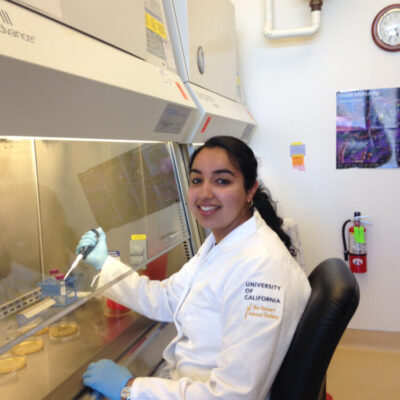Mallika Lal L&S Sciences
Genetic Mechanisms of Heteroresistance in KPC-producing Klebsiella pneumoniae
Antibiotic resistance in the Enterobacteriaceae family, which includes Gram-negative bacteria E. coli and Klebsiella, has become a serious public health problem. Many bacteria of this family produce extended-spectrum beta-lactamases (ESBLs), which are enzymes that can degrade most beta-lactam antibiotics. Therefore, carbapenems, a type of beta-lactam drug, are increasingly the drugs of last resort for ESBL-producing bacteria. However, an enzyme called Klebsiella pneumoniae carbapenemase (KPC) threatens to render carbapenems completely ineffective, leaving few choices for treatment in patients with infections caused by KPC-producing species. In fact, the CDC has designated carbapenem-resistant Enterobacteriaceae (CRE) as urgent threat pathogens. The goal of this project is to investigate the genetic mechanisms of heteroresistant KPC-producing species, which are bacteria that show drug susceptibility in vitro, but quickly become resistant after exposure to antibiotics. Using transposon mutagenesis assays, I aim to identify potential genes involved in mediating the heteroresistant phenotype. This research will help to identify new potential targets for drug therapy and improve treatment outcomes for patients with CRE infections.
Message To Sponsor
Engaging in research has been one of my most rewarding and significant experiences in my three years at Cal. I am incredibly grateful for the opportunity to immerse myself full-time this summer on a project I am very passionate about. I am excited to learn new molecular techniques as well as practice the presentation and communication skills important in research. I want to thank the SURF L&S program and the Thye Fund donors for giving me this privilege and for their support of undergraduates in their academic careers.